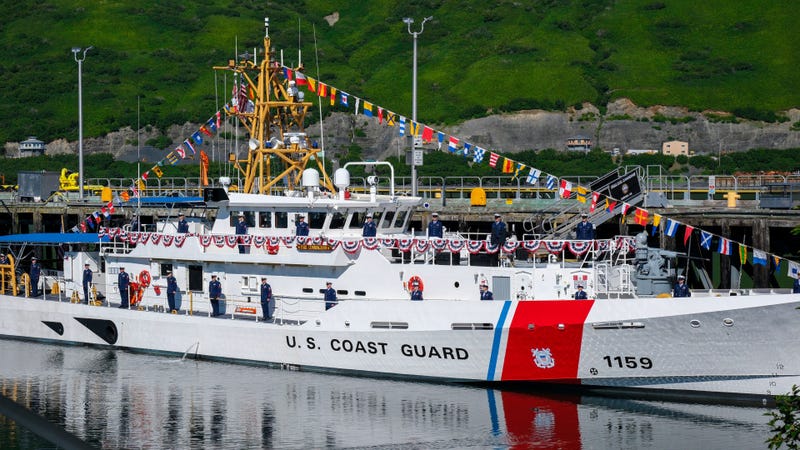
The U.S. Coast Guard commissioned its newest cutter, Coast Guard Cutter Earl Cunningham (WPC 1159), for official entry into its service fleet during a ceremony held in Kodiak, Alaska, on Aug. 11.
The ceremony was presided over by Adm. Kevin Lunday, acting commandant of the Coast Guard. Members of the Cunningham family were also in attendance, including the cutter’s sponsor, Penney Helmer, Cunningham’s granddaughter.
“Commissioning the USCGC Earl Cunningham strengthens our ability to control, secure, and defend Alaska's U.S. border and maritime approaches, protect resources vital to our economic prosperity, and respond to crises throughout the Aleutian Islands,” said Adm. Lunday in a release. “This crew will honor the heroic legacy and selfless devotion to duty exemplified by Petty Officer Cunningham in the years ahead.”
The Earl Cunningham is the 59th Fast Response Cutter (FRC) in the service and the second of three FRCs scheduled to be homeported at Coast Guard Base Kodiak.
Its crew primarily serves in and around the Aleutian Islands, Bering Sea, Gulf of Alaska, and North Pacific Ocean. According to the release, it is designed for missions such as search and rescue, fishery patrols, drug and migrant interdiction, national defense, and ports, waterways, and coastal security.
Cunningham enlisted in the Coast Guard in 1928 and was appointed as a surfman. On Feb. 8, 1936, he volunteered to rescue two ice fishermen who were trapped in the water on Lake Michigan. Cunningham was able to reach them on his skiff and pulled them out of the water. However, adverse weather conditions prevented them from returning to shore.
Three days later, one of the fishermen walked nine miles across the ice onto shore to safety. The other died trying to make it across the ice with him. Cunningham had died and was found on Feb. 12, frozen in place, still manning the oars of the rescue skiff.
For his ultimate sacrifice, Cunningham was awarded the Gold Life Saving Medal posthumously. He was survived by his wife, Helen and three sons.
Cunningham had also previously served in the Army and fought in the trenches of France during World War I, leaving the service as a corporal to eventually join the Coast Guard.
The Coast Guard has ordered a series of new FRCs to replace the 1980s-era Island-class 110-foot patrol boats. Supported by investments made possible through President Trump's One Big Beautiful Bill Act, the legislation provides nearly $25 billion – the largest single funding commitment in Coast Guard history – including $1 billion for additional FRCs.
